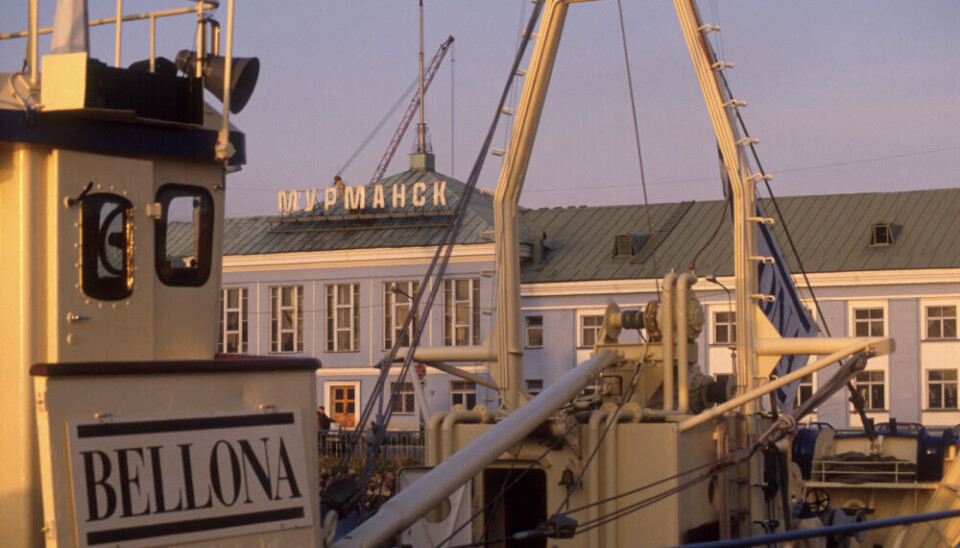
Russia labels Bellona “Undesirable Organization”
The Prosecutor General’s Office in Moscow on Tuesday said the Norwegian non-governmental ecological organization Bellona conducts activities aimed at undermining Russia’s economy and poses a threat to the constitutional order and security.
Originally founded in Norway in 1986, the Bellona Foundation worked actively to improve nuclear safety, reduce industrial pollution and establish alternative energy production in northern Russia for more than three decades. The group’s offices in Murmansk and St. Petersburg developed close cooperation with official and private stakeholders in Russia and internationally aimed at finding solutions to ecological challenges, including the nuclear waste dumps along the coast to the Barents Sea and at industrial sites like Norilsk and Nikel.
The announcement by Russia’s top prosecutor is strong-worded.
Bellona’s work is “aimed at undermining the Russian economy, discrediting the domestic and foreign policy pursued by the authorities, destabilizing the socio-political situation in the country and poses a threat to the foundations of the constitutional order and security of the Russian Federation.”
The General Prosecutor says the organization, in particular, finances non-profit organizations that act as “foreign agents”, and “attempts are being made to influence Russian legislation in order to change it.”
Bellona’s manager, Frederic Hauge, rejects the accusations. In a phone interview with the Barents Observer, he says his organization will continue the work, despite the dramatic decision by Moscow.
“We will continue to reveal Russian authorities’ neglect of environmental hazards for Russian citizens. We will continue to document Rosatom’s role in the war on Ukraine and continue to make life difficult for them as we have always done,” Hauge says.
Norway’s Foreign Minister, Anniken Huitfeldt, says in a comment she “deeply regret that Russian authorities have declared Bellona an undesirable organization.”
“Bellona has played an important tole as a civil society actor in Russia for several decades,” Hutifeldt says.
She adds that Norway views “with deep concerns” the systematic suppression of civil society through the laws on foreign agents and unwanted organizations.
“The situation for human rights in Russia is now very disturbing.”
Like many other environmental groups, Bellona has for years been pursued by authorities. The Murmansk office was declared a “foreign agent” in 2015. Two years later, in 2017, the main office in St. Petersburg got the same branding from Russia’s Justice Ministry.
The General Prosecutor’s Office writes in the April 18 decision that it has studied Bellona’s work in Russia and has now informed the Ministry of Justice about the decision to include the environmental foundation in the list of international NGOs whose activities are recognized as undesirable in the country.
The Chief Procurator also argues that Bellona “has been actively involved in anti-Russian information campaign and discrediting Russia’s Armed Forces.” This has been the case since the beginning of “the special military operation by Russia to demilitarize and denazify Ukraine,” the text reads.
The law on undesirable organizations has been expanded several times and can be used to hinder any foreign or international organization that allegedly undermines Russia’s constitutional order, military, or security.
When blacklisted, any “undesirable organization” must cease all activities in Russia or face criminal sanctions.
A 2021 amendment to the law makes it easier to open criminal cases for people affiliated with an undesirable organization. Offences carries a punishment of up to six years in prison.
The Bellona Foundation left Russia in 2022, but several of the organization’s former staff from Murmansk and St. Petersburg were relocated to a new office in Vilnius, Lithuania where monitoring the environmental developments in Russia has continued.
Frederic Hauge underlines that the Vilnius office will continue operations. “This makes it harder, and we will likely need some time to figure out how the future work can be done most effectively,” Hauge adds.

The Justice Ministry’s list of undesirable organizations now includes more than 80 NGOs, businesses and media.














